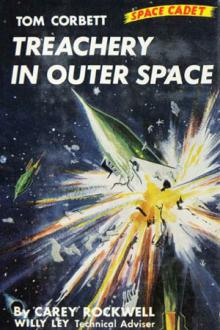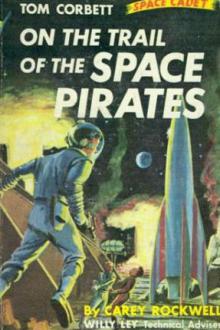Genre Fiction. Page - 229

congratulate you upon----"
"No, no," Beatrice cried quickly. "Please don't. Perhaps if you tell me your name I may be in a position to help you to find anybody you may chance----"
The stranger shook her head as she stood in the doorway. Her voice was low and sweet as she replied.
"It does not in the least matter," she said. "You can call me the Slave of the Bond."
CHAPTER II
The guests had assembled at length, the dinner was in full swing. It would have been hard for any onlooker to have guessed that so much misery and heart-burning were there. Sir Charles, smiling, gay, debonair, chatted with his guests as if quite forgetful of the silent watchers by the railings outside. He might have been a rich man as he surveyed the tables and ordered the waiters about. True, somebody else would eventually pay for the dinner, but that detracted nothing from the host's enjoyment.
Beatrice had a fixed smile to her face;

shadows. As if there might be a fog. But no fog, however, thick, could hide the apple tree that grew close against the house.
But the tree was there ... shadowy, indistinct in the gray, with a few withered apples still clinging to its boughs, a few shriveled leaves reluctant to leave the parent branch.
The tree was there now. But it hadn't been when he first had looked. Mr. Chambers was sure of that.
* * * * *
And now he saw the faint outlines of his neighbor's house ... but those outlines were all wrong. They didn't jibe and fit together ... they were out of plumb. As if some giant hand had grasped the house and wrenched it out of true. Like the house he had seen across the street the night before, the house that had painfully righted itself when he thought of how it should look.
Perhaps if he thought of how his neighbor's house should look, it too might right itself. But Mr. Chambers was very weary. Too weary to think about the house.
He turned from the window and

l roared. "You've got thirty seconds to make it. And if you don't make it, you'll go down on my bad-rocket list!"
Almost in one motion, the three cadet candidates saluted and charged through the door. When they had gone, Connel turned to the Polaris cadets who were still at attention. "At ease!" he roared and then grinned.
The boys came to rest and smiled back at him tentatively. They never knew what to expect from Connel. "Well, did you put them through their paces?" he asked as he jerked his thumb toward the door.
"Yes, sir!" said Tom.
"Did they know their manual? Or give you any lip when you started giving them hot rockets?" Connel referred to the hazing that was allowed by the Academy, only as another of the multitude of tests given to cadets. Cadet candidates might possibly hide dangerous flaws from Academy officials but never from boys near their own ages.
"Major," said Astro, "those fellows came close to blasting off right here in these chairs. They

of the room, their skipper's final words ringing in their ears.
Fifteen minutes later, having packed the necessary gear for the extended trip, the Polaris unit rode the slidewalk through the grassy quadrangle and the cluster of Academy buildings, out toward the spaceport. In the distance they could see the rocket cruiser Polaris, poised on the launching ramp, her long silhouette outlined sharply against the blue sky. Resting on her four stabilizer fins, her nose pointed toward the stars, the ship looked like a giant projectile poised and ready to blast its target.
"Look at her!" exclaimed Astro. "If she isn't the most beautiful ship in the universe, I'll eat my hat."
"Don't see how you could," drawled Roger, "after the way you put away Mrs. Corbett's pies!"
Tom laughed. "I'll tell you one thing, Roger," he said, pointing to the ship, "I feel like that baby is as much my home as Mom's and Dad's house back in New Chicago."
"All right, all right," said Roger.

legs and a little smile, and a little voice, and littleround-about ways. As long as I can remember him he was always goinglittle errands for people, and carrying little gossip. At this presenttime when he called me "Sophonisba!" he had a little old-fashionedlodging in that new neighbourhood of mine. I had not seen him for two orthree years, but I had heard that he still went out with a littleperspective-glass and stood on door-steps in Saint James's Street, to seethe nobility go to Court; and went in his little cloak and goloshesoutside Willis's rooms to see them go to Almack's; and caught thefrightfullest colds, and got himself trodden upon by coachmen andlinkmen, until he went home to his landlady a mass of bruises, and had tobe nursed for a month.
Jarber took off his little fur-collared cloak, and sat down opposite me,with his little cane and hat in his hand.
"Let us have no more Sophonisbaing, if you please, Jarber," I said."Call me Sarah. How do you do? I hope you are pr

"I understand, Captain Joyce," said the General, "that you have allowed a very important prisoner to slip through your fingers."
"I am sorry, sir."
"No doubt. But that will not mend matters. Did you ascertain anything about him before you lost him?"
"No, sir."
"How was that?"
"I could get nothing out of him, sir."
"Did you try?"
"Yes, sir; I did what I could."
"What did you do?"
"Well, sir, I threatened to use physical force."
"What did he say?"
"He said nothing."
"What was he like?"
"A tall man, sir. Rather a desperate character, I should think."
"Any way by which we could identify him?"
"A long black beard, sir. Grey eyes. And a nervous way of twitching his face."
"Well, Captain Joyce," said the General, in his stern, inflexible voice, "I cannot congratulate you upon your first exploit in the Egyptian army. You are aware that every English officer in this force is a picked man. I have the whole

All is still and sombre. At this hour the simple traffic of the thinly-peopled country is over, and nothing can be more solitary.
From this jungle, nevertheless, through which the mists of evening are already creeping, she sees a gigantic man approaching her.
In that poor and primitive country robbery is a crime unknown. She, therefore, has no fears for her pound of tea, and pint of gin, and sixteen shillings in silver which she is bringing home in her pocket. But there is something that would have frighted another woman about this man.
He is gaunt, sombre, bony, dirty, and dressed in a black suit which a beggar would hardly care to pick out of the dust.
This ill-looking man nodded to her as he stepped on the road.
"I don't know you," she said.
He nodded again.
"I never sid ye neyawheere," she exclaimed sternly.
"Fine evening, Mother Carke," he says, and holds his snuff-box toward her.
She widened the distance between them by a step or so, and said again sternly and pale,
"I hev nowt to say to thee, whoe'er thou beest."
"You know Laura Silver Bell?"
"That's a byneyam; the lass's neyam is Laura Lew," she answered, looking straight before her.
"One name's as good as

me back," he said, tenderly. "You will be cold."
"It is colder for my son," said the old woman, and wept afresh.
The sound of her sobs died away on his ears. The bed was warm, and his eyes heavy with sleep. He dozed fitfully, and then slept until a sudden wild cry from his wife awoke him with a start.
"The paw!" she cried wildly. "The monkey's paw!"
He started up in alarm. "Where? Where is it? What's the matter?"
She came stumbling across the room toward him. "I want it," she said, quietly. "You've not destroyed it?"
"It's in the parlour, on the bracket," he replied, marvelling. "Why?"
She cried and laughed together, and bending over, kissed his cheek.
"I only just thought of it," she said, hysterically. "Why didn't I think of it before? Why didn't you think of it?"
"Think of what?" he questioned.
"The other two wishes," she replied, rapidly.
"We've only had one."
"Was not that enough?" he demanded, fiercely.
"No," she

invariable custom of the house; and sat in a dead silence, that seemed natural to the great sober room.
This, however, was not for want of a topic; on the contrary, they had a matter of great importance to discuss, and in fact this was why they dined tete-a-tete. But their tongues were tied for the present; in the first place, there stood in the middle of the table an epergne, the size of a Putney laurel-tree; neither Wardlaw could well see the other, without craning out his neck like a rifleman from behind his tree; and then there were three live suppressors of confidential intercourse, two gorgeous footmen and a somber, sublime, and, in one word, episcopal, butler; all three went about as softly as cats after a robin, and conjured one plate away, and smoothly insinuated another, and seemed models of grave discretion: but were known to be all ears, and bound by a secret oath to carry down each crumb of dialogue to the servants' hall, for curious dissection and boisterous ridicule.
At

11
As fast as thou shalt wane so fast thou grow'st,
In one of thine, from that which thou departest,
And that fresh blood which youngly thou bestow'st,
Thou mayst call thine, when thou from youth convertest,
Herein lives wisdom, beauty, and increase,
Without this folly, age, and cold decay,
If all were minded so, the times should cease,
And threescore year would make the world away:
Let those whom nature hath not made for store,
Harsh, featureless, and rude, barrenly perish:
Look whom she best endowed, she gave thee more;
Which bounteous gift thou shouldst in bounty cherish:
She carved thee for her seal, and meant thereby,
Thou shouldst print more, not let that copy die.
12
When I do count the clock that tells the time,
And see the brave day sunk in hideous night,
When I behold the violet past prime,
And sable curls all silvered o'er with white:
When lofty trees I see barren of leaves,
Which erst from heat did canopy